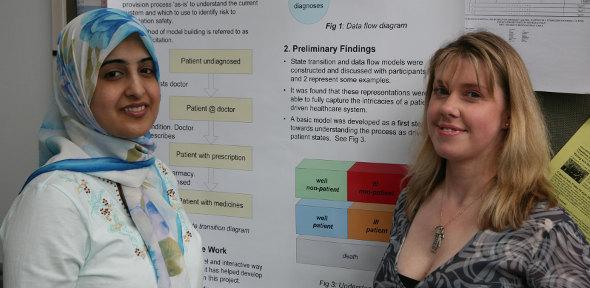
Much of the Latin and Greek medical jargon that makes up the exclusive language of doctors should be abandoned because it could be harming patients.
Dr Melinda Lyons of the Department's Engineering Design Centre (EDC) said the "dead language" terminology, dating as far back as the 5th century BC, spreads confusion and could potentially put patients at risk. She wants to see the language of medicine brought up to date and simplified by removing "archaic risk-prone terms".
Writing in The Lancet medical journal, Melinda listed a wide range of prefixes commonly used by doctors which look or sound alike but have completely different meanings. Examples included, "inter" (between) versus "intra" (within), "super" or "supra" (above) versus "sub" or "sur" (below), and "hypo" (low) versus "hyper" (high).
Melinda's paper in The Lancet demonstrates the broad scope of the EDC's focus. The paper highlighted the risks to patient safety due to the confusion over lookalike and soundalike terms that are generated through the sector's reliance on Greek and Latin terms. Unlike previous research, this paper identified the prefixes that pose the greatest risk. The field of healthcare typically manages problems of lookalike / soundalike terms through "quick fixes" such as coloured packaging and handwriting assessments, as well as encouraging "readback" of terms. Radical reforms of the language would rarely be seen as a solution.
In many ways, the challenge arising from the lookalike / soundalike terms is similar to that addressed by the EDC's inclusive design team, which seeks to educate designers to consider those with impairments or disabilities in order to ensure products are manufactured with their needs in mind. The definition of an "inclusive language of healthcare" would ensure that the safety of staff and patients alike is not compromised through misreading or mishearing terms.
Effective design is not just about the work of engineers or designers. By advocating a systems approach, in order to capture the many facets of the design process, the EDC requires the skills of many other professions. For example, in the EDC's healthcare design group, it is necessary to have a good understanding of the needs of the sector. As a result a number of the PhD students have backgrounds in pharmacy, radiography and counselling, whilst Melinda brings expertise in human factors and safety along with extensive experience in the offshore and aviation industries.

